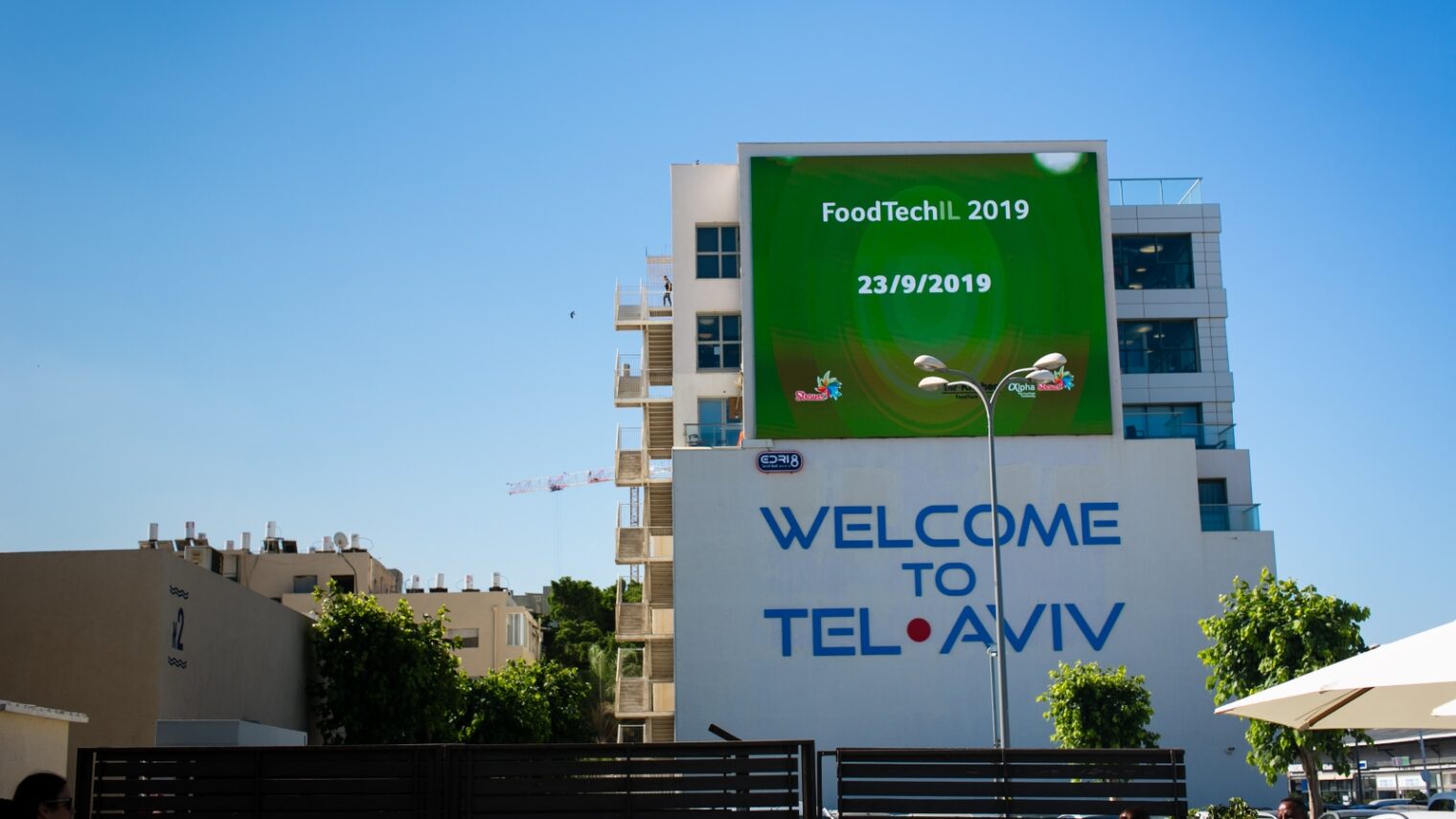It wasn’t a hunger for signature dishes like hummus and shakshuka that lured investors, corporate executives and officials from 45 countries to Tel Aviv for AgriFood Week events including FoodTechIL and AgriVest.
They were craving new innovations in agriculture and food technology, collectively nicknamed agrifood-tech.
“It’s a very rich environment for outsiders looking in,” Finistere Ventures cofounder and partner Arama Kukutai told ISRAEL21c at FoodTechIL on September 23.
Kukutai flew in from California for AgriFood Week soon after his global VC firm helped launch a multimillion-dollar food-tech incubator in northern Israel.
“On a per-capita basis Israel is probably No. 1.”
“We’re food and ag specialists and we have a global perspective on technology coming out of North America, Austral-Asia and Europe, where we also have offices. Israel is clearly the No. 2 innovation hub in terms of venture capital, next to North America,” said Kukutai.
“On a per-capita basis it’s probably No. 1. Israel punches above its weight.”
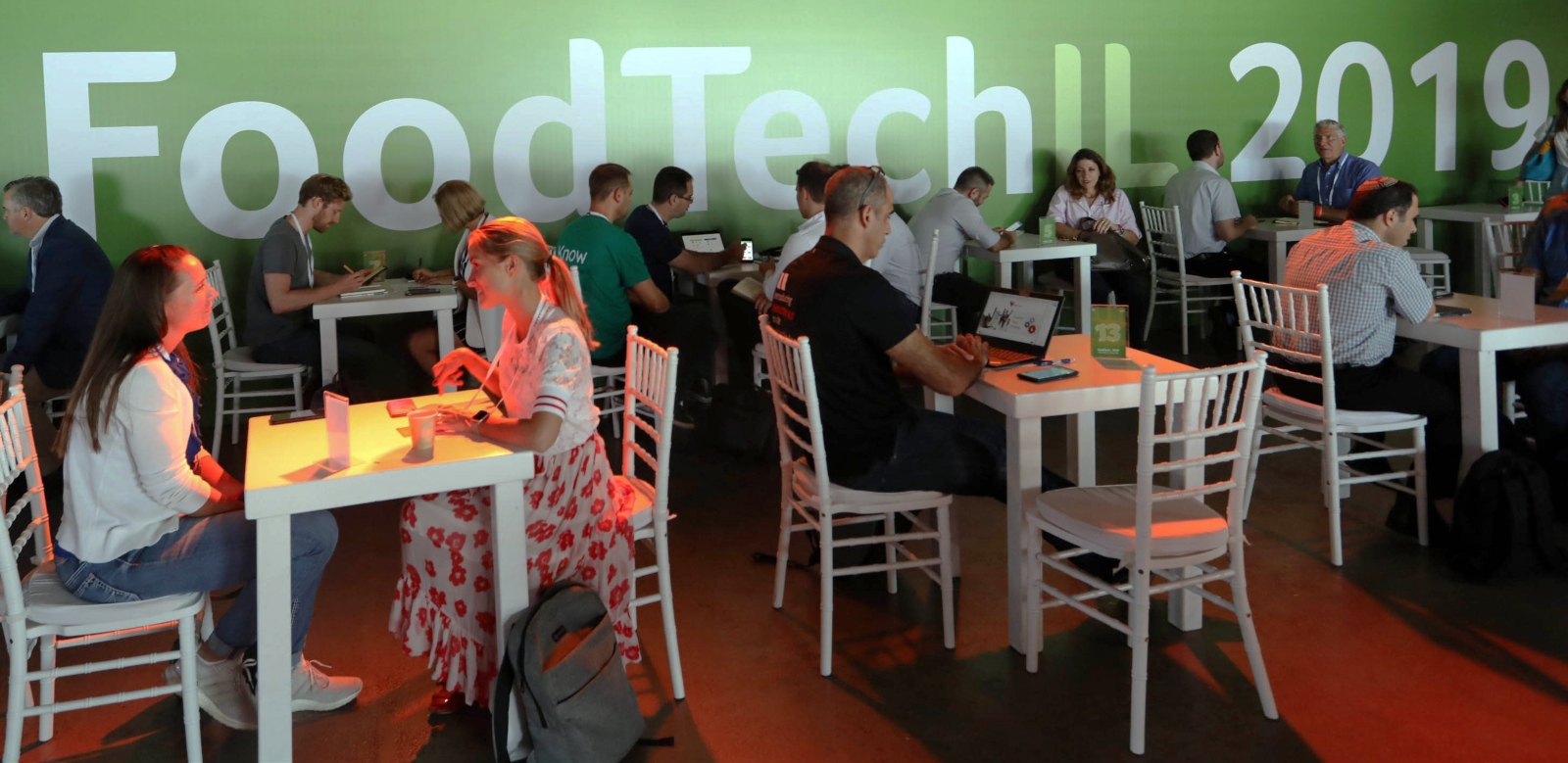
ISRAEL21c also met reps from American chocolate giant Hershey at FoodTechIL.
“We know in Israel the innovation dynamic is very fast; it’s like the Silicon Valley of the world,” said Qingbin Yuan, senior director of international R&D for Hershey. “We came here looking for new ideas and insights that can benefit the company and our consumers.”
Yuan was with Steven Hess, senior director of R&D for Hershey. “Our company is on a journey to expand from a pure confectionary player to the broader snacking space with a particular focus on healthier snacking,” Hess explained.
“As part of that growth trajectory, we are looking to engage with startups and companies developing interesting technologies — whether an ingredient technology or a process technology or a go-to-market technology.”
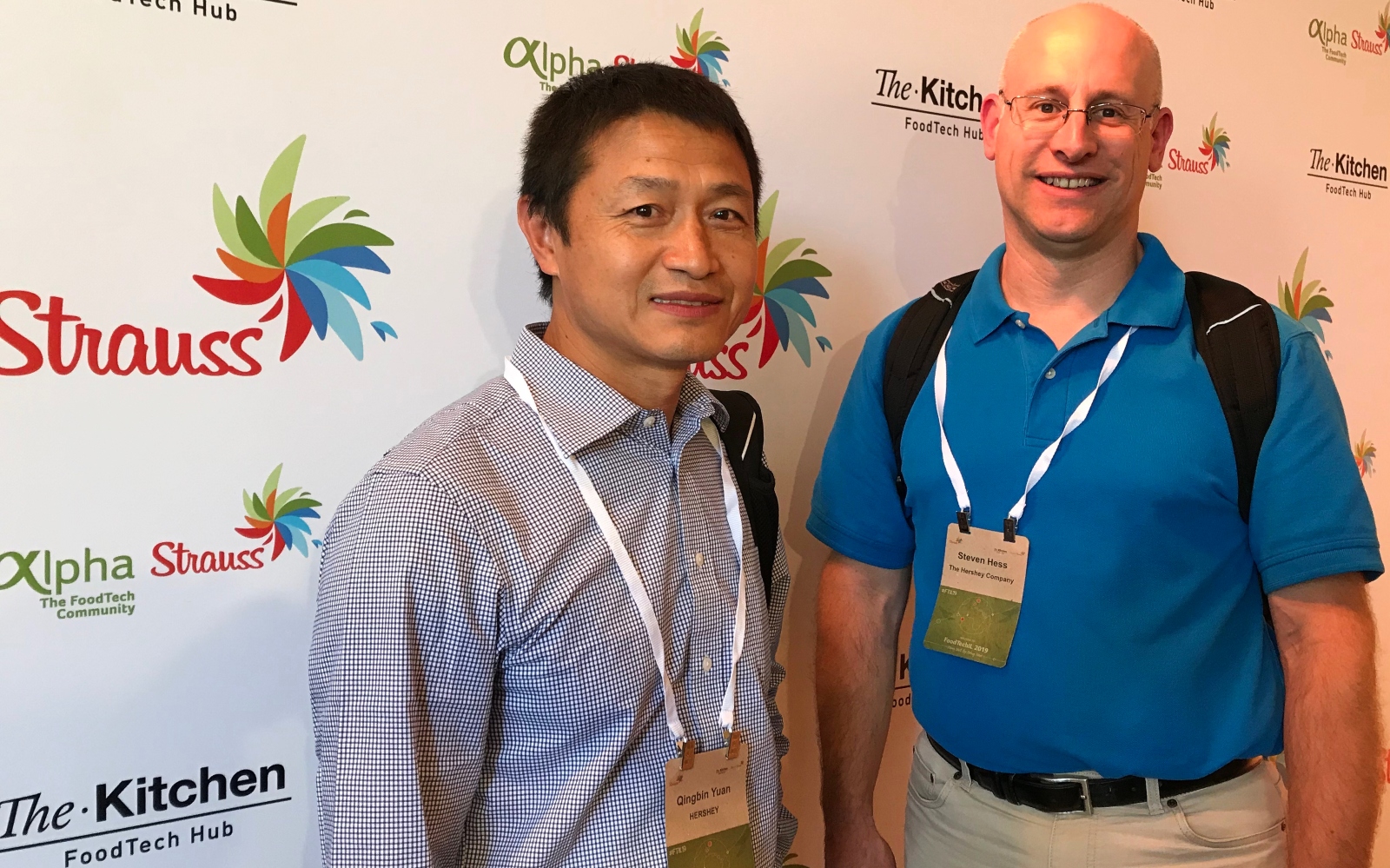
Some of the new snack ideas ISRAEL21c saw displayed in the Israeli startup pavilion at FoodTech might fit the bill.
EatSane by A1C Foods was handing out samples of high-protein, reduced-carb, nutrient-dense breads, buns and chocolates that don’t spike blood sugar. The cofounder, Dr. Mariela Glandt of the Glandt Center for Diabetes Care in Tel Aviv, is a Harvard and Columbia-trained endocrinologist.
ToLive Smoothies was showing its planned line of powdered smoothie mixes made from “a harmonious mixture of raw plants, fruits, super-foods and spices.”
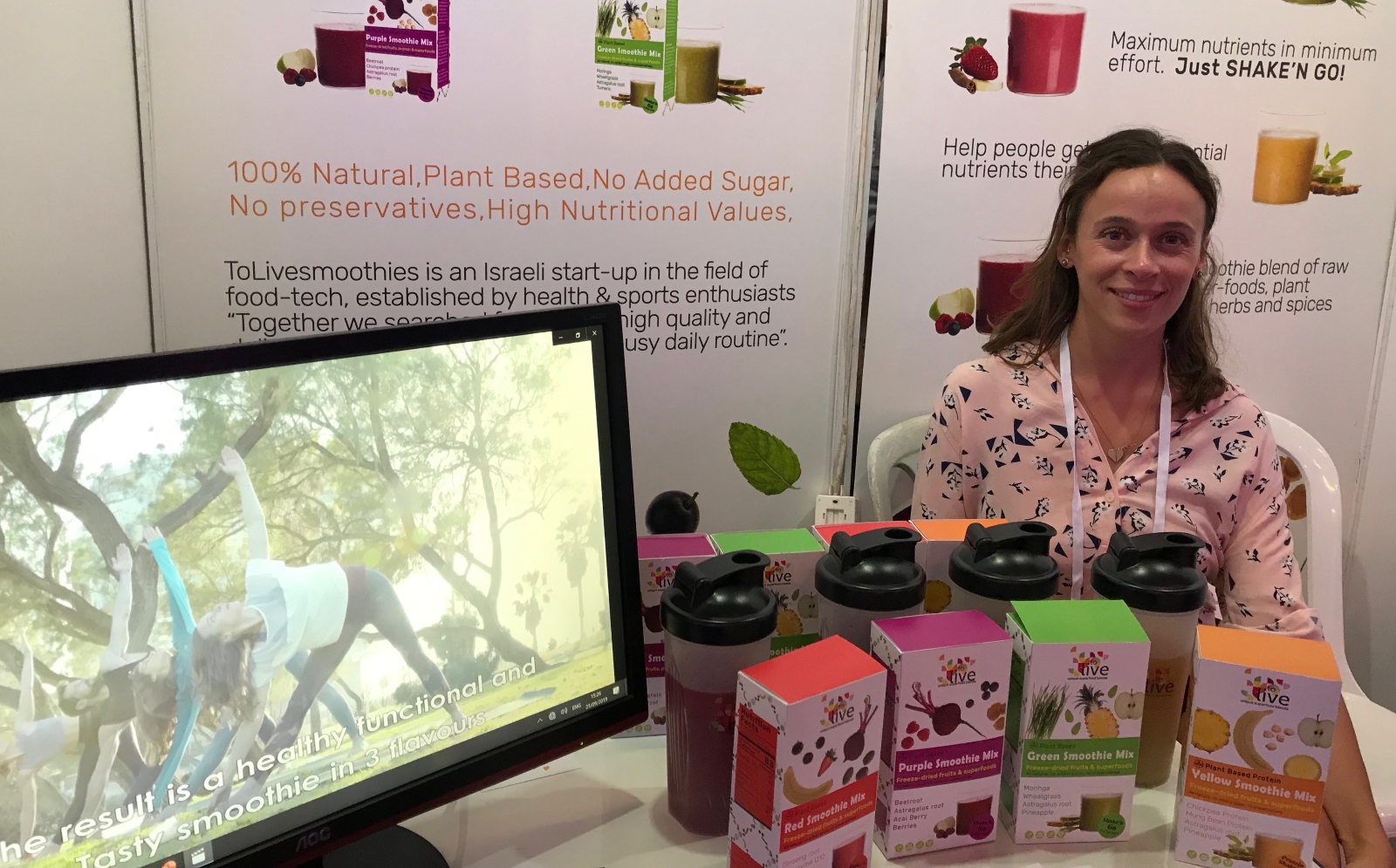
Astro, a future snack made from quinoa, fruits, vegetables, nuts and grains, with a touch of maple syrup, was developed by a special food-tech team led by Dagan Eshel, VP of innovation for the Strauss Group. The name is a reference to the NASA freeze-drying technology from NASA to lock in nutrition and taste.
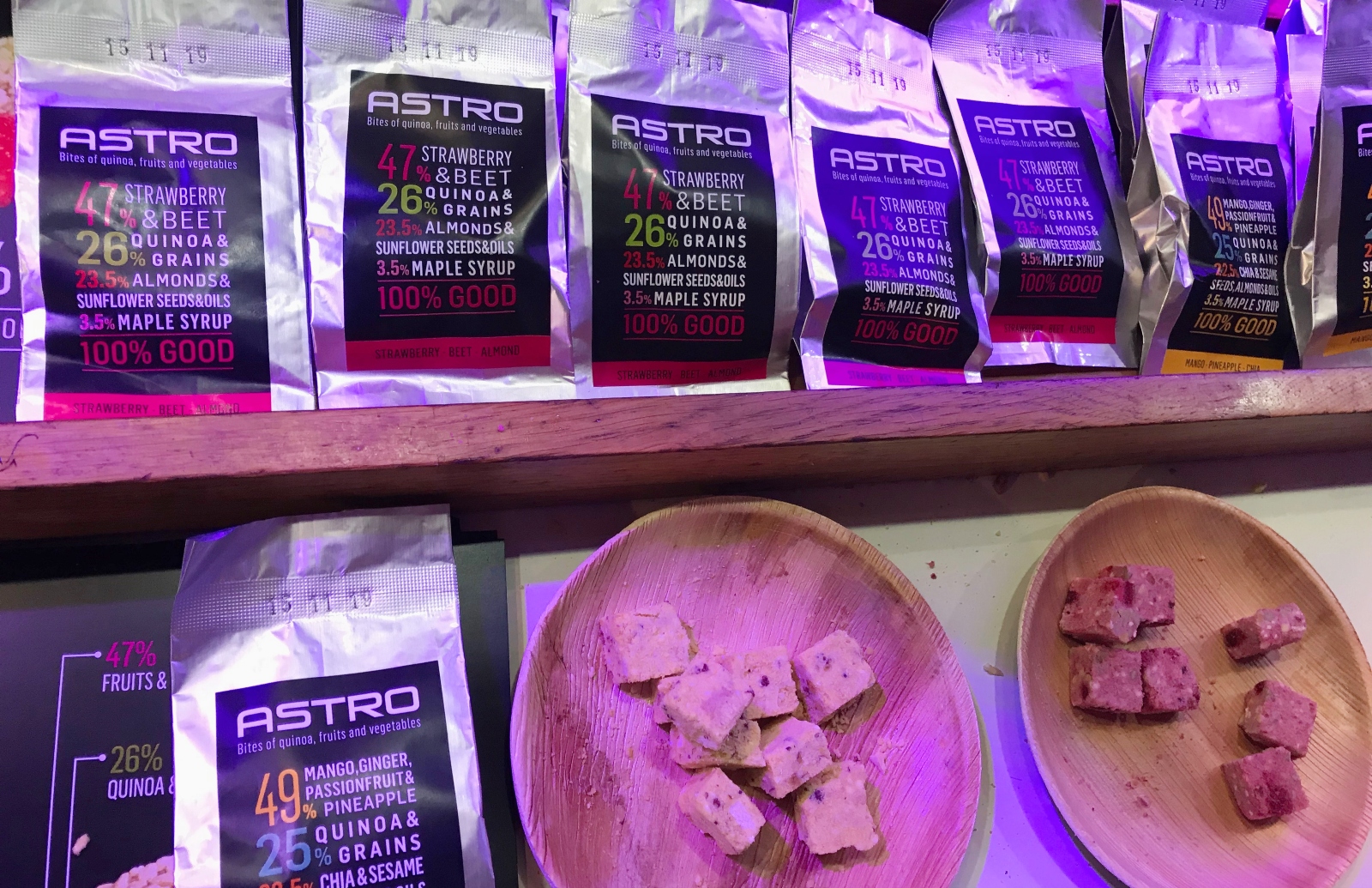
Israel’s second-largest food manufacturer, Strauss opened the world’s first food-tech incubator, The Kitchen FoodTech Hub accelerator, in Ashdod in 2015.
One of its 15 portfolio startups, Yofix, which makes dairy-free, soy-free probiotic yogurt, caught the eye of Taylor Bolam, an international business associate from the Nebraska Department of Economic Development.
Nebraska is the top US exporter of beef, Bolam explained. “As an agricultural and food-processing state, Nebraska is interested in new protein technologies. That includes innovative uses of plants in foods, like we see in Yofix.”
Bolam also was intrigued by Hargol Technologies, which is developing low-fat, inexpensive protein additives made from farmed grasshoppers.
“We see good synergies between new technologies developing in Israel and the raw and value-added products produced in Nebraska,” said Bolam, one of a five-person Nebraska delegation at FoodTechIL.
“In the future we’d love to have Israeli companies be part of the Nebraska economy. For now, we are looking to increase engagement through partnerships, research and conference attendance.”
Fresh Start
Food-tech is the new kid on the Israeli block compared to other highly advanced tech sectors. Kukutai looks at it from the combined point of view of food and ag. They’re both growing quickly although Israeli ag-tech is more established.
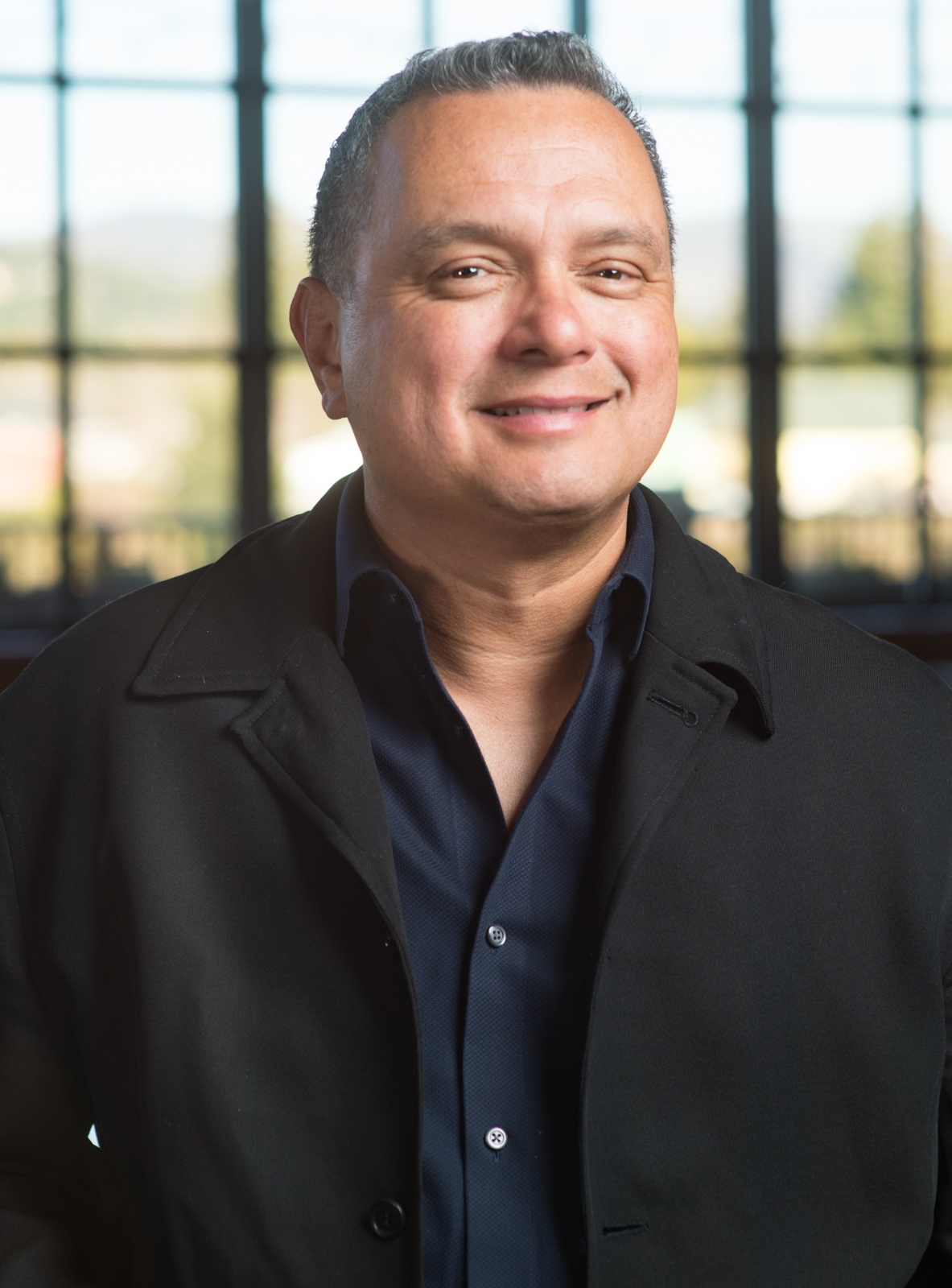
“It’s our view that the same ingredients that have made Israel very successful in sectors such as cybersecurity and fintech will make Israel successful in the context of food and agriculture,” he says.
“It’s such a fundamental industry and part of Israel’s history when we think about innovation in arid agriculture, drip irrigation, water recycling, and the fusion food traditions that have brought out innovation in dairy and plant-based proteins.”
“The Potential of Israeli Foodtech,” a new Israel Innovation Authority Report, reveals that Israeli food-tech startups now number between 250 and 300. In the first three quarters of 2019, these startups raised $135 million, compared to $123 million in all of 2018.
“This sector needs connected capital, which is the role we’re playing with Fresh Start,” says Kukutai, referring to the new ₪1 billion ($285.5 million) food-tech incubator opened in Kiryat Shemona on September 12 by the Israel Innovation Authority.
A consortium from Finistere Ventures; OurCrowd equity investment platform; Tnuva, Israel’s largest food manufacturer; and Israeli beverage company Tempo won the tender to operate the venture over the next eight years.
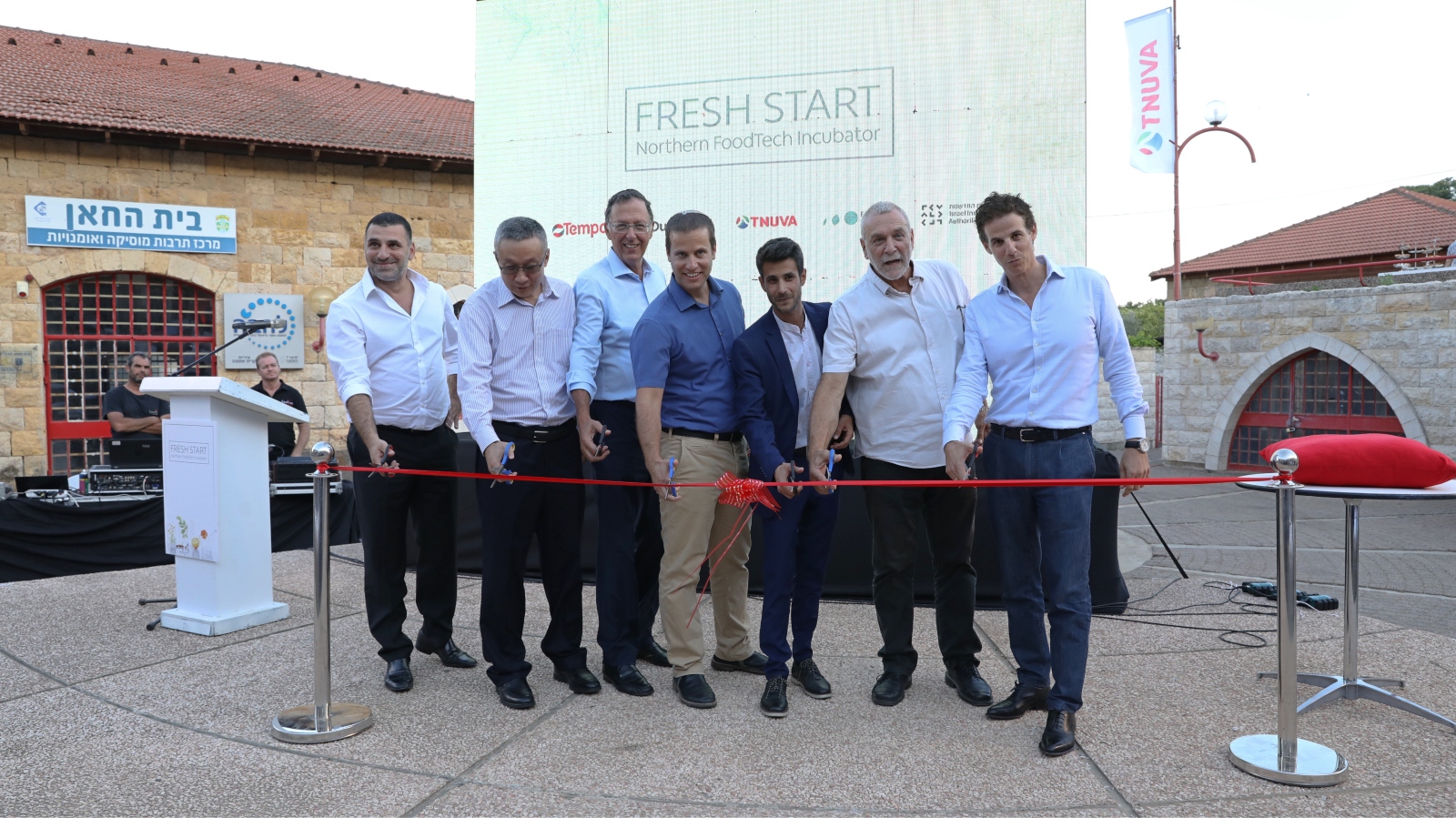
Global food giants PepsiCo, Bright Food and Heineken will help accelerate the incubator’s eventual 40 startups developing technologies for the entire chain of the food and beverage industry.
Fresh Start will also have input from Israeli research and academic institutions in northern Israel, including the Migal Galilee Research Institute, Tel-Hai College and Northern Research and Development.
Also in the same area of northern Israel, the Jewish National Fund-USA (JNF-USA) has partnered with Israeli NGO ii2020 to construct a food technology and innovation center and an Institute of Culinary Arts.
Plant science and noble foods
“In the last six years, $25 billion of US venture capital has gone to food and agriculture,” Kukutai pointed out.
Finistere identifies food problems and then searches for technologies offering possible solutions “that you can build a company or companies around,” he explained.
“If you think about climate change affecting the ability of farmers to grow crops, for example, one of the fundamental areas we’re investing in is plant genetics, making plants more resilient to highly variable conditions such as drought and greater salinity and heat. Of course, Israel has some of the best plant-science research institutions in the world, especially when it comes to arid desert conditions.”
Among the Israeli ag-tech companies Finistere has invested in are Taranis and CropX. “They are digitizing the farm environment and helping farmers make better use of resources such as water and fertilizer.”
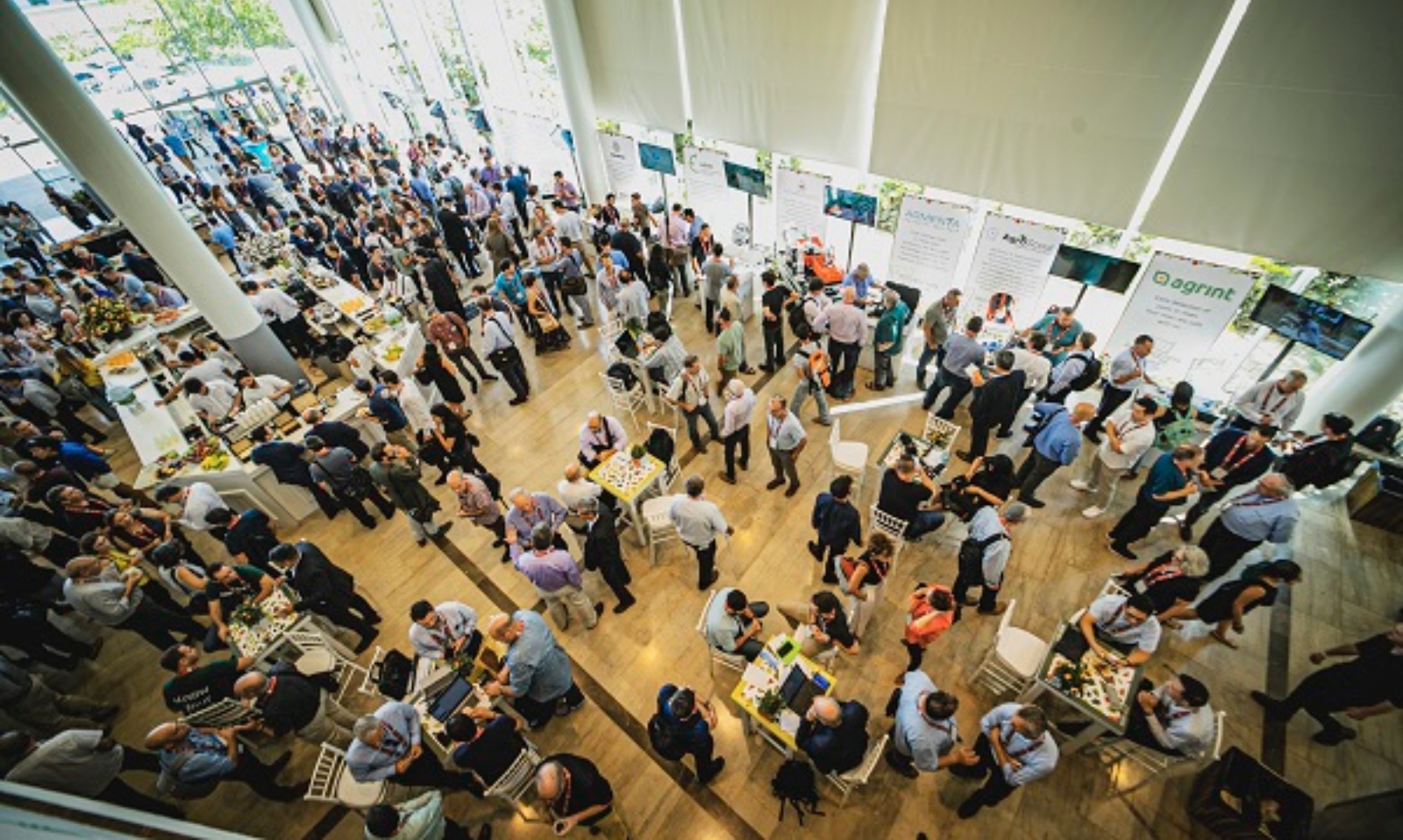
Kukutai noted many of the portfolio companies in The Kitchen are developing “noble foods” that meet the increasing desire of consumers for more convenient but more nutritious food, beating obesity and diabetes.
He has been traveling to Israel for the past five years. “Our team here helped us find sources of innovation in the ecosystem and increasingly we started making investments here as we saw the scope and range of opportunity,” he told ISRAEL21c.
“There’s an interconnectedness to the ecosystem here where in a small physical distance you can see so many things. In the US, California has that element but otherwise things are very spread out. In Israel, you can put your arms around a lot of smart people and smart ideas in a very short distance.”




